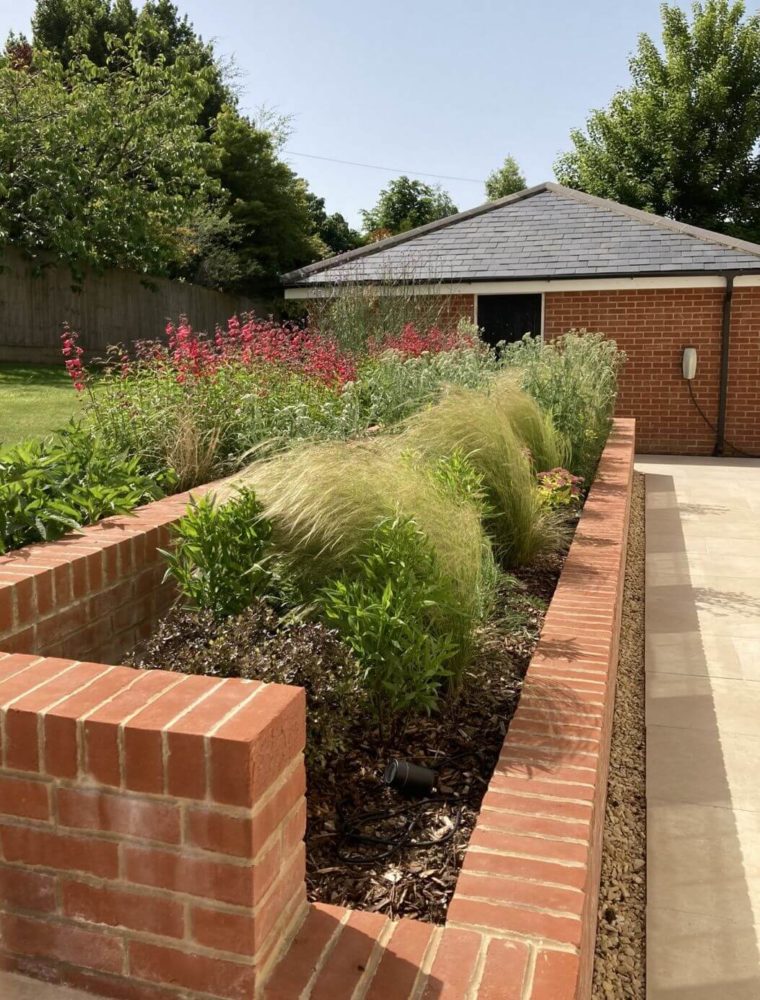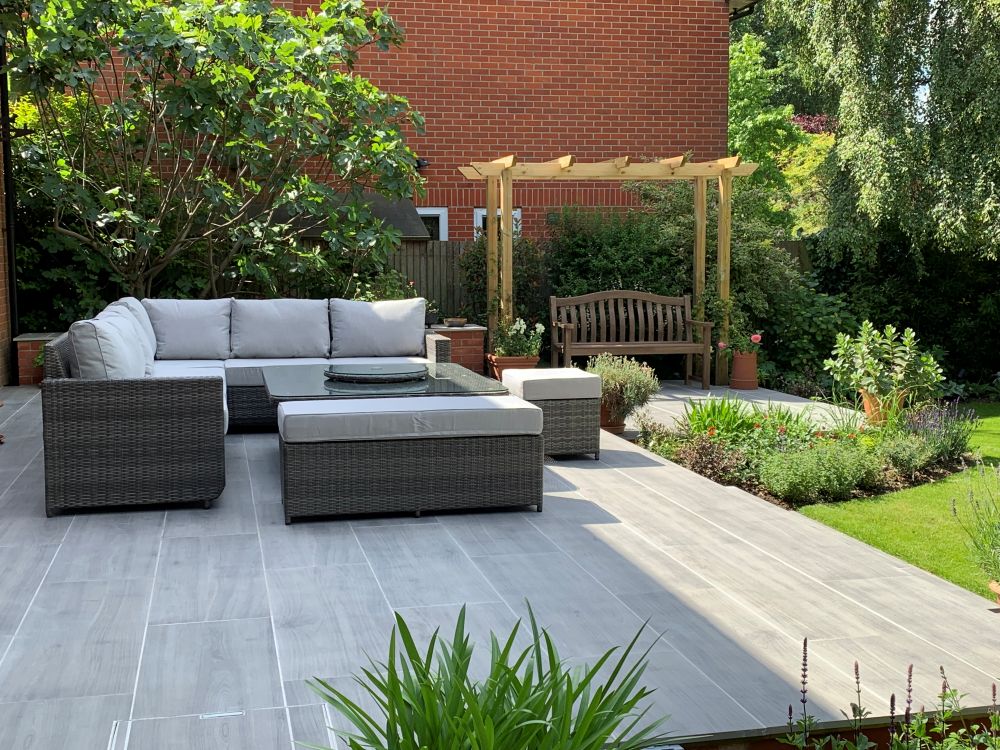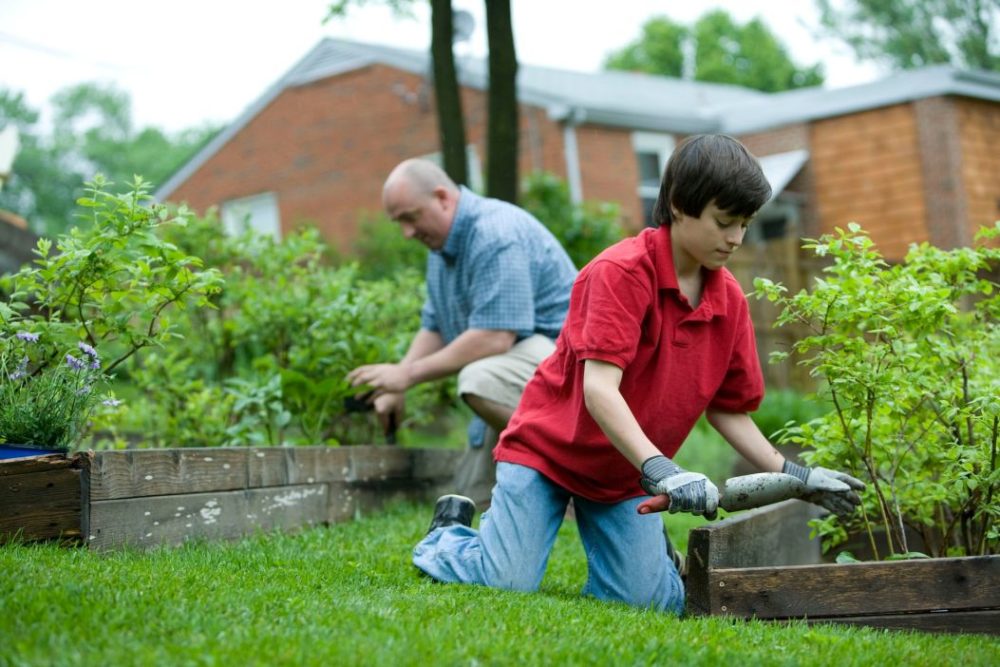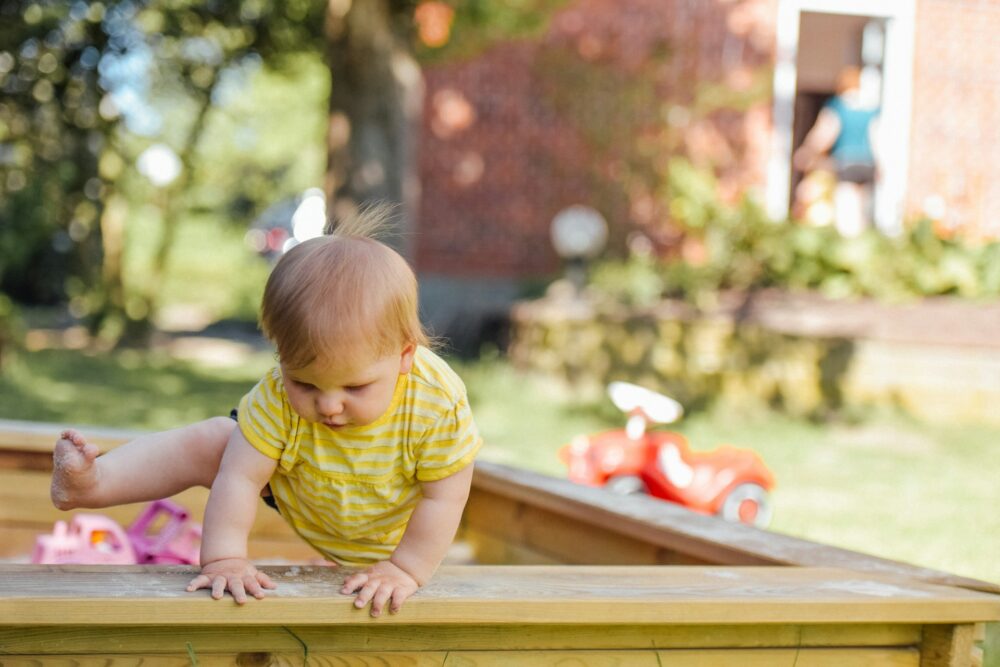Gardens for Wellbeing
Gardens offer endless opportunities to boost our health and wellbeing. This blog is all about designing a garden for relaxation and restoration.

Spending time in our gardens is a wonderful way to boost our health and wellbeing. In recent years, many of us have taken a renewed interest in looking after our mental and physical health. A brilliant way of doing this, is by engaging with our gardens. Our outside spaces can be designed with wellbeing specifically in mind by including elements that support relaxation and restoration.
All we need to do is step outside our back door. And it all starts with the senses – our gardens stimulate our senses, thereby calming our minds…
Scent
- Scent is a powerful sense – what we smell can really affect our mood. Just think about the wonderful feeling of walking around a rose garden or brushing past a lavender bush.
- There are many plants that give a variety of scents – from very floral roses to sweet smelling honeysuckle – there is a plant that appeals to everyone and will work in any sized garden.
- To make the most of your scented plants, plant them in pots on your patio, outside your back door, kitchen window or close to the edge of your path so you can smell the wonderful scent as you walk past, and feel your mood being lifted.


Touch
- Texture in a planting scheme adds lots of sensory appeal. Swaying perennial grasses are calming to watch and listen to, but also lovely to run your figures through.
- Some research has shown that standing bare foot on grass or touching bare earth, also known as grounding, can reduce stress and create a sense of calm. There is something very relaxing about laying on the grass during those warm summer days.
Sound
- Gentle sounds can add to the feeling of being amongst nature and create a relaxing atmosphere.
- A simple water feature with a gentle trickling sound can be incredibly relaxing.
- In smaller spaces, try a rain chain to capture the sound of overflowing water from a gutter, with a simple metal chain or a string of metal cups.
- The movement of planting such as the rustling of leaves or the swishing of tall grasses can all add to the tranquility.

The way the landscaping is designed is key to creating a tranquil space and will encourage you to spend more time outside…

Pausing Points
- Our gardens are a place to slow down from our busy day to day lives. To do this, we need places to visually slow us down within a design.
- Even in the smallest spaces, we need to be able to stop, look around and take in our surroundings.
- Pausing points might include a peaceful respite corner such as a bench, a change in material along a path or a plant with a strong architectural impact that makes us stop and observe.
Somewhere to Sit
- Somewhere to sit and relax in your garden is essential.
- Seating spaces not only create secluded spots, but also places to connect with others. We’ve never been more aware of our deep human need for social contact and the negative effects of isolation, so a space to entertain friends and family is essential to our wellbeing.
- Whether it’s an old-fashioned garden bench or a large patio, there are lots of options. A built-in bench will save space in smaller gardens and give a year-round seating option.


Grow Your Own
- Growing your own food is an easy and popular pastime for many people. Having a kitchen garden (however big or small) boosts our wellbeing, whilst encouraging a healthy diet and sustainable living.
- Cutting gardens can also be a lovely way to spend time outside and bring some colour inside. Who doesn’t love a vase of bright beautiful flowers in the house?.. and it feels even better if you’ve grown them yourself!
- A well designed kitchen garden or even a few raised beds can really boost your wellbeing in the garden. Nothing beats watching your food and flowers grow before your eyes from the seeds you have planted and nurtured.
Play and Fitness
- Play and fitness are essential for our wellbeing whatever our age! Designing a garden with this in mind, involves creating space for play and fitness for the whole family.
- This might include a lawn with space for ball games, a climbing frame, trampoline or sandpit for the children or even a garden gym. The key is to make it work for you and your family.


Encouraging Nature
- We know that spending time in nature can reduce stress and anxiety, promote calmness and happy hormones. So creating a garden that encourages nature, can help our health as well as the health of the ecosystem.
- Planting pollinator-friendly flowers, adding a tree or creating a ‘nature friendly’ corner are all ways to encourage wildlife into your space.
- Seeing bees and butterflies buzzing around or the sound of singing birds is definitely a tonic for body and mind.
Designing a garden that is specific to you and your family’s needs is the most important part of creating a successful, enjoyable space. This includes considering how your garden could benefit your mental and physical wellbeing. Hopefully this blog has given you some ideas to get started – and we have lots more!…
From planning a new border to a complete garden remodel, we pride ourselves on transforming ideas into beautiful reality, with minimum disruption. If you’re based in or around the Reading and Newbury area, we’d love to meet and discuss your project in detail – book your free no-obligation garden consultation today.
Photo Credits